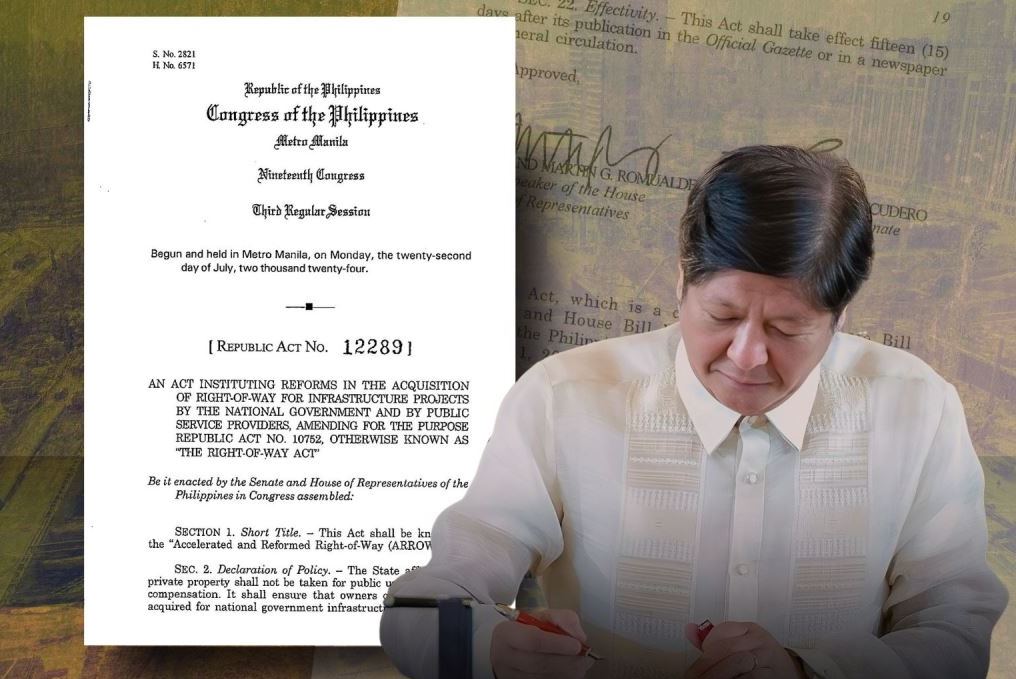
By Dean Aubrey Caratiquet
In a bid to improve bureaucratic efficiency and ensure relevance to modern conventions, President Ferdinand R. Marcos Jr. has signed into law Republic Act No. 12289, which aims to expedite and ensure fairness in the government’s acquisition of land for infrastructure projects.
The Accelerated and Reformed Right-of-Way (ARROW) Act introduces amendments and adds new provisions to several sections of Republic Act No. 10752, or the Right-of-Way Act of 2016.
R.A. 12289 outlines key definitions of national government projects and private entities providing public services, as well as the rules on negotiated sales, which may be done through donation, negotiated sale, expropriation, or any other mode of acquisition in compliance with the law.
The ARROW Act likewise mandates the use of a valuation system and schedule of market values (SMV) in determining the appropriate price offer for the property acquisition talks, as stipulated under Republic Act No. 12001 or the Real Property Valuation and Assessment Reform Act of 2024.
The law stated, noting the provisions of Republic Act No. 7160 or the ‘Local Government Code of 1991’: “Local government units (LGUs) may also adopt the provisions of this Act for use in the acquisition of right-of-way for local government infrastructure projects.”
In the absence of an approved SMV, the offer amount must be based on the Bureau of Internal Revenue (BIR) zonal land valuation and the assessed value of the improvement, including machinery considered as immovable under the New Civil Code, structures, crops, or trees.
For untitled lands, the land owner or possessor is required to submit a tax declaration, an affidavit from disinterested residents where the land is located, a Real Property Tax Certificate, a certification from the Department of Environment and Natural Resources (DENR), and a property technical description.
Meanwhile, under the amendments made to Section 9 of R.A. 10752, the Department of Human Settlements and Urban Development (DHSUD) is designated as the chief administrative agency that will oversee the processing and development of resettlement sites for informal settlers to give way to the construction of public works.
The amended Sections 10 and 12 also call for project right-of-way acquisition to be done in adherence to the Public-Private Partnership (PPP) Code of the Philippines of 2023, as well as ensuring accountability for private entities that fail to comply with the provisions of the ARROW Act, respectively.
Among the departments tasked with preparing the implementing rules and regulations of R.A. 12289 were the Department of Agriculture (D.A.), Department of the Interior and Local Government (DILG), Department of Economy, Planning, and Development (DEPDev), Department of Agrarian Reform (DAR), DENR, and DSHUD.
jpv
